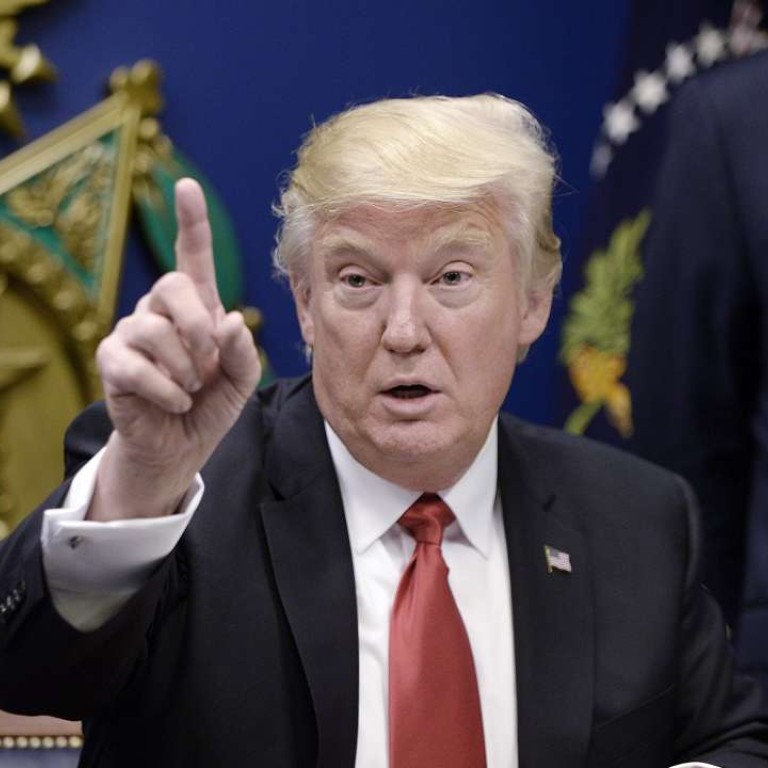
Trump ‘all for’ great relationship with China, Russia, ahead of phone call to Putin
President Donald Trump struggled on Friday to define and shape his new administration’s foreign policy, taking his first face-to-face meeting with a world leader, British Prime Minister Theresa May, and trying to move past an early nasty fight with Mexico.
If we can have a great relationship with Russia and China ... I’m all for that
A week into his presidency, Trump has confounded and confused the diplomatic establishment, leaving many veterans at a loss to discern a clear strategy.
While Trump has tried to project the image of renewed American strength, his inexperience in foreign policy matters has at times contradicted that message.
On Saturday, Trump plans a friendly telephone call with traditional US foe President Vladimir Putin of Russia, but Trump has laid out few details about how he intends to approach that fraught relationship.
And the new president risked angering Muslim allies with plans to impose sweeping new restrictions on refugees entering the US from Syria and other war-torn countries.
Meanwhile, one of Trump’s other chief foreign policy representatives had tough talk of her own on Friday.

Nikki Haley, on her first day as the administration’s new ambassador to the United Nations, promised significant change “in the way we do business … Our goal with the administration is to show value at the UN, and the way that we’ll show value is to show our strength, show our voice, have the backs of our allies, and make sure that our allies have our back, as well,” Haley said at the UN headquarters in New York. “For those who don’t have our backs,” she warned ominously, “we’re taking names.”
For all his disruptive behaviour in his first week in office, Trump took a more moderated tone and calm demeanour in the brief news conference with May.
Having declared a new policy of “America first” in his inauguration, Trump’s focus with May was on the potential benefits of increased bilateral trade with Britain.

May was installed last summer after the British voted to leave the European Union in a referendum that Trump touted as a precursor to his own victory, both prompted by nationalist fervour.
But differences with May were also apparent.
On Russia, Trump said it was “too early” to discuss with Putin the lifting of sanctions, as his adviser Kellyanne Conway has suggested. Washington and the European Union slapped economic sanctions on Moscow after Putin annexed Crimea in 2014.
“We look to have a great relationship with all countries,” Trump said. “If we can have a great relationship with Russia and China, and with all countries, I’m all for that. That would be a tremendous asset.”

May, however, said flatly that sanctions should not be lifted until Russia pulls out of Crimea.
Trump reiterated his belief that torture works as a terrorism-fighting tool. But he said he would leave the final decision over whether to use such techniques to Defence Secretary General James Mattis, who has voiced opposition.
“We condemn the use of torture, and my view on that won’t change,” May told reporters on her flight to the US.
In terms of personal styles as well, the two could not be more different. Where Trump shoots from the hip and is at times rash, May is a stickler for details and prefers a laboured decision-making process.
Asked about the contrast, Trump said: “I’m not as brash as you might think,” adding the two leaders would get along.

